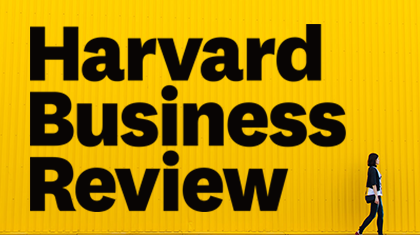The University of Miami Patti and Allan Herbert Business School continue harboring excellence with innovative empirical studies, and the Harvard Business Review has taken notice. In the last year, the Review has featured three stories on studies by Miami Herbert faculty, giving deserved prominence to original works that explore topics in the modern business landscape. The studies reveal unexpected realities that occur in various economic environments, such as tattoo acceptance in the workplace, the downsides of management by algorithms, and the best CEO-CFO combination for successful mergers and acquisitions.
A Tattoo Won’t Hurt Your Job Prospects
Body art enthusiasts can breathe a sigh of relief, says the first study, featured in the 2018 November-December issue. Michael T. French and Karoline Mortensen of Miami Herbert, along with Andrew Timming of the University of Western Australia, surveyed more than 2,000 people in the United States (controlling for factors like alcohol use and jail time) and found no detrimental relationship between bearing tattoos and job prospects. In fact, earnings carried no penalty either – inked and ink-free employees earn the same.
Though tattoos have often been associated with unwanted employee characteristics such as less honesty or less motivation, or even rebellion or criminality in a more cultural context, times are changing. French points out that body art has gained acceptance as a form of personal expression, like clothing, jewelry, or hairstyle. New perceptions may account for results that hold despite gender, tattoo offensiveness, or visibility.
However, the study does not investigate a possible difference among tattooed workers in blue collar jobs versus white collar ones. Surveyed participants had an average annual salary of $31,000. Yet the changing times may continue to surprise us. “I suspect that nowadays most people think it’s okay for even doctors, lawyers, and accountants to have tattoos,” says French.
What People Hate About Being Managed by Algorithms, According to a Study of Uber Drivers
Employees in the gig economy sector may find fewer reasons to rejoice, according to the Review’s second Miami Herbert feature. A team of four researchers including Miami Herbert’s Ola Henfridsson studied Uber drivers in New York and London using interviews, forum data, and media coverage analysis. Their study reveals a workforce frustrated with a “faceless” boss.
Algorithms allow Uber to manage a large, remote workforce. In turn, employees can decide their own schedules and areas to service. Yet workers exhibit discontent with the constant surveillance, lack of transparency, and sense of dehumanization. The app watches them for location, speed, acceptance rate of customer requests, and adherence to instructions on routes and customer pick-ups. In addition, drivers are subjected to customer ratings of their performance. Meanwhile, they know little about the unseen mechanisms that determine their ratings compilation, job allocations, and payment structure.
Feeling isolated and micromanaged, employees act on their frustration. In an online forum, one driver advised others on how to play the system: “We all know these companies like to offer better incentives to drivers that miss some time. So, drive Uber for one week, Juno next, Lyft third.” Angry employees also converge in online communities that, in some instances, take shape as union-type organizations, such as Seattle-based Working Washington.
Algorithmic management companies should invest in humanizing their organizational construct. Sharing more about their algorithmic systems, involving employees in committees or councils that address internal regulations, or creating supportive communities that provide social connections would help workers feel more included. Adding to employees’ sense of humanity would do the same for the organization.
The CEO and CFO Pairing That Makes Mergers More Successful
The Harvard Business Review’s third feature article, by Wei Shi of Miami Herbert and Guoli Chen of INSEAD, delves into more optimistic territory. A strong global economy has allowed for a ten-year high in the number of mergers and acquisitions. But what enables the likelihood of M&A success, or what could indicate potential failure? Shi and Chen find the answer in C-suite dynamics, specifically in the relative optimism between the chief executive and chief financial officers.
Their study includes analysis of 2,356 firms in the United States and the 4,529 M&As that they undertook. The CEO’s and CFO’s use of positive and negative words as reflected in conference calls between 2002 to 2013 captured their levels of optimism and pessimism, or their CEO-CFO relative optimism. Results indicate that CEOs, often risk-takers, generally use more positive words, such as “achieve,” “reward,” and “satisfy.” CFOs, the risk assessors, tend to use more negative words like “flaw,” “false,” and “penalize.”
Matching the CEO-CFO relative optimism to the firm’s number and success rate of M&As exposes an optimal combination: an optimistic CEO with a pessimistic CFO. When both the CEO and CFO show high optimism, they engage in more M&As, but the ventures yield low returns. On the other hand, an optimistic CEO balanced by a pessimistic CFO results in less M&As, but with the highest success rate. In this dynamic, the visionary chief executive is tempered by the prudent financial evaluator. The CFO acts as “a gatekeeper who brings the high-flying CEO down to earth,” as the authors describe. The study emphasizes the importance of role congruence in senior management teams – personalities, not only skill sets, should fit the roles assumed.
The Harvard Business Review’s attention in the last year places Miami Herbert Business School squarely on its radar. With novel research in the pipeline for the upcoming year, the School is likely to stay there.

